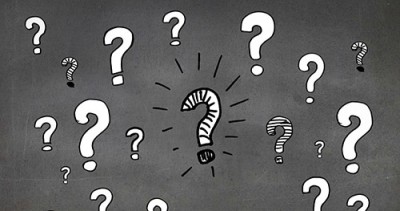
Passover traditionally brings four questions, but there’s one which is painful for many people.
It’s that time of year when Jews all around the world are asking each other what they are doing for Seder night. Sometimes the answer is easy, like ‘We’re making the Seder for my parents,’ or ‘We’re joining our children.’ Sometimes the answer provokes envy, like ‘We’re going to a hotel for Passover.’ But sometimes, the question is stressful, and the answer is painful.
For young mothers making their first ever Seder, it’s a stressful question. It’s stressful for busy grandmothers trying to clean for Passover before the whole family, including all of the grandchildren, turns up to get underfoot, and for working parents trying to fit in Passover prep around full work schedules. ‘What are you doing for Passover?’ is a question that reminds them of all the tasks they still have to do, and the worry about getting it all done in time.
But for the lonely, the elderly, and the overlooked, the question ‘What are you doing for Passover?’ is painful.
The coming together of Seder night
Seder night is possibly our most-observed family ritual. 95% of all Israelis have a Passover Seder, even though fewer than half of them identify as religious or traditional. It’s a time when cousins and aunts and uncles and old family friends get together, even if they participate in no other rituals all year. There’s a special coming together that happens at the Seder.
You might think that the communal Seder is the solution for people who have nowhere else to go. Not so fast. Communal Seders are wonderful. But no matter how dedicated and charismatic is the Rabbi hosting it, a communal Seder is not the same as a family one. A communal Seder does not give the same tribal sense of belonging as joining a family Seder.
Part of a tribe
For many years, our family hosted an elderly lady at the Seder. She was so appreciative of being part of a real Seder. She could have gone to the local communal Seder, but she didn’t like being one of the ‘waifs and strays,’ as she put it. At our Seder table, even though we were not her own family, she felt part of a tribe.
The media will tell you that everyone needs a tribe. They describe a tribe as a motivational tool, a way of making your voice heard louder and amplifying your message to reach more people. These inspirational speakers and writers talk about a tribe as something used by business people or entrepreneurs. TED speaker Seth Godin says that tribes of people who share a common passion can change the world.
It’s an inspiring vision, but I think it misses the point. A tribe isn’t a business tool, and changing the world isn’t why we need one. We need a tribe for our basic mental, emotional and even physical health. As Jews, we know that we are part of a caring Nation, but sometimes a nation is too big. With the best will in the world, it’s impossible to feel aware of several million Jews. We need something smaller, a unit big enough to be able to support those who need help, but small enough to notice and to care.
The lonely, elderly, or overlooked need a tribe in order to take the pain out of the question ‘What are you doing for Seder night?’
On Seder night, we recite from the Haggadah the words ‘All who are in need, let them come and join our Seder.’ If we say those words, and mean them, a bit more often in the weeks leading up to Passover, we can ease that one painful Passover question and do our part to heal a fractured nation.
Passover’s One Painful Question
Typography
- Smaller Small Medium Big Bigger
- Default Helvetica Segoe Georgia Times
- Reading Mode




